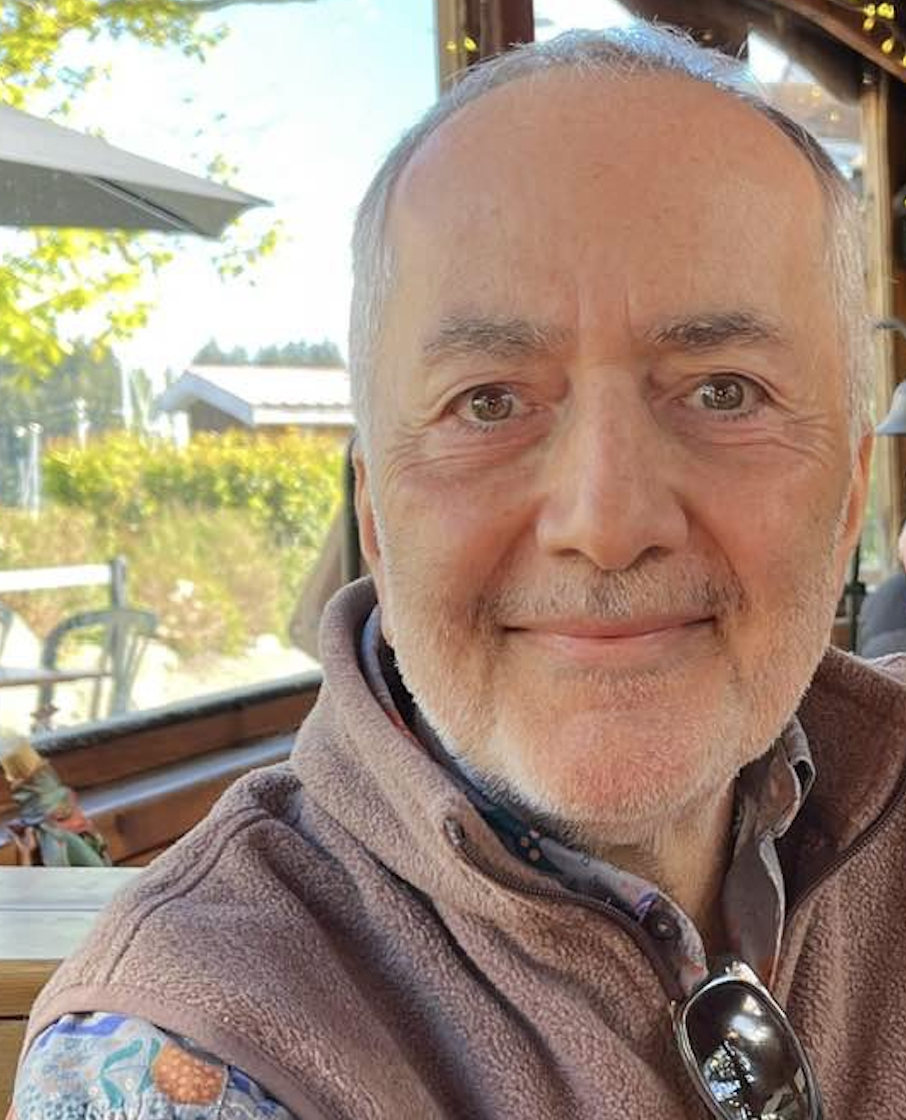Support strong Canadian climate journalism for 2025
A longtime feminist, I’m still learning about the considerable challenges for women living in a patriarchal era. Recently, while reading Rebecca Solnit’s memoir, Recollections Of My Nonexistence, I realized that the chapter “Wartime” isn’t about the Second World War or Vietnam (or some other regional war), it’s about how women have to stay vigilant for their own personal safety every single day — something confirmed by my close women friends. This stunned me to the core. That and decades of reflection bring me to one conclusion: patriarchy is our species’ original sin. Most of our societal and global issues stem from its absurd illogic.
No man has ever become pregnant or endured childbirth. Yet, it’s still taboo to talk openly of the menstrual blood women shed each month. We know women excel in any path they choose and they can perform any task men can — from the most mundane to being an astronaut on the international space station — albeit at less pay and while menstruating. But in some countries, females still fight for the human rights of education and self-expression.
The notion of male supremacy, the toxic masculinity we used to call macho, is ludicrous. And dangerous. Patriarchy’s curse is the devaluation and suppression of more than half of humanity — the half that births us all. Its beast is misogyny, a fearful hatred of women.
This idiocy is patriarchy. An insult to intelligence. A colossal lie.
Consider the unprecedented worldwide success of the Barbie movie, the first billion-dollar grossing film by a female director, and superstar Taylor Swift’s Eras tour success, the first ever to gross over $1 billion dollars. Barbie director Greta Gerwig and Taylor Swift both wrestled with patriarchy and triumphed. Gerwig’s Barbie takes patriarchy head-on. Swift’s song All Too Well has a “fuck the patriarchy” lyric you can’t miss. She is the most successful pop music star ever. In an entertainment industry that puts men first, Gerwig and Swift are champions. They’ve stirred things up.
Why is this important?
The success of Gerwig and Swift opens doors for many who are deeply moved by their takedown of male supremacy.
The truth is, it is matrilineal love that has powered human societies for millennia. As Dr. Jen Gunter puts it in her book, Blood: “The menstrual cycle is the wheel that drives humanity.”
And yet, patriarchy shows contempt for generative systems, both a woman’s physiology and Earth’s ecosystems.
What’s more, capitalism echoes that contempt. Our economy has a measure of progress (gross domestic product, or GDP) that only counts the money exchanged. The GDP ignores social and environmental impacts of doing business in its monetary tally, calling these “externalities,” as if our social lives or the health of the environments on which we depend can be ignored. As if the labour of maternal love — pregnancy, birthing, postpartum stress, breastfeeding — amounts to nothing. It has been widely noted: the GDP counts everything except what makes life worthwhile.
Let’s go a bit deeper and look to the infants of our species. How does patriarchy affect children?
All of us start life utterly vulnerable and totally dependent on our caregivers’ nurture without which we would die. And all infants, regardless of race or ethnicity, have the same developmental needs. These needs — for love, shelter, clothing, nourishment, clean air and water — are universal and irreducible for healthy growth and learning.
Breast milk, babies’ first food, would’ve made for an interesting scene in Barbie. At the film’s end, in her search for a gynecologist, Barbie gets real. But what world would her offspring, if she chose to have a child, be born into? What kind of world would Taylor Swift’s children face?
Capitalism, patriarchy’s amoral economy, cannot care for our young. Corporations are legally bound only to benefit their shareholders. So there is an inherent conflict between how society is organized and the irreducible needs of the very young. Capitalism is just obsessed with monetary growth. And that growth mostly benefits the wealthy one per cent at the top who need it least, primarily men in positions of power.
In desirable cities, market forces drive up the cost of living beyond what most people can afford. Demand for housing creates real estate bubbles, pushes rental prices out of range for families and most can’t dream of ever owning a home. The majority of families struggle financially month to month. Full-time workers at minimum wage can’t make a living. Parents are in chronic stress even in two-worker homes. Their kids are impacted adversely from an ongoing lack of resources. This, too, is patriarchy.
The film Barbie brilliantly walks a fine line between entertaining and teaching. Its lush visuals and fantasy characters offer eye-opening perspectives on “women living in a man’s world.” The pushback is not subtle. Opening scene: “In our assessment, money is not speech, and corporations have no free speech rights to begin with. So any claim on their part to be exercising a right is just their attempt to turn our democracy into a plutocracy.” Whoa. Down goes Goliath.
Corporations wield undue powers that overwhelm democracy’s “one person, one vote” credo and turn a country into a plutocracy — government by the wealthy. A sharp political point you don’t expect at the start of a pink doll flick.
When you think about it, hypercapitalism’s “only the wealthy thrive” bias is, simply put, uncaring. Cruel. And as women are increasingly aware of patriarchy’s falseness, they gain power over it and speak with emboldened voices.
Taylor Swift’s phenomenal success reflects Barbie’s message that women can be and do anything. And her “fuck the patriarchy” song lyric speaks volumes.
When girls played with Barbie dolls, not baby dolls, they were in a pretend grown-up world of imagination. The skinny-waist adult doll with fashion glitz was hardly a feminist icon. But the film transcends a love/hate take on the doll when Barbie’s feet lose their arch and she touches the ground, then ventures out into the real world. Barbie’s journey in self-awareness is one that scores of females are on, judging from comments of how relevant this story has been for them. Such is the awakening fire of this moment.
And there’s baby power in all of this.
As newborns arrive and learn about life (both external and internal), evidence shows that their first years set the tone for a lifetime of outcomes. Will their parents and society at large recognize their personhood, affirm their dignity and intelligence and respect and provide for their developmental needs? From a healthy growth point of view, that is the question — do I feel seen and respected for who I am? Capitalism totally ignores it.
In a patriarchal construct, kids don’t count. They aren’t viewed as people. (Punitive home discipline is still legal, although it’s a crime to hit adults.)
Patriarchy’s colonization of children’s psyches and spirits is a cold refusal to see their personhood. In my work with the Raffi Foundation For Child Honouring, A Covenant For Honouring Children exposes patriarchy’s sin, declares that “… all children are created whole, endowed with innate intelligence, with dignity and wonder, worthy of respect.”
Children’s first years’ experience must be respectful and life-affirming, not coercive obedience and punishment. Early experience lasts a lifetime. When it is positive and supportive, children thrive. When it’s negative and hurtful, their true selves can’t flourish. This is well documented, undeniably true.
So, what would Barbie say? What would she and Taylor Swift vote for? Not patriarchy.
Cultural historian Riane Eisler wrote in her groundbreaking book, The Chalice And The Blade, that the basic human choice is between domination and partnership. In prehistory, before patriarchy, partnership marked the human bond, not domination. Partnership is love, human love. Patriarchy is fear, a lack of love. The intergenerational trauma of misogyny is vast. It needs healing on a vast scale.
Patriarchy is an unsustainable calamity, and it must end. That’s what the film Barbie points to, what Taylor Swift’s spirit and energy are about. We need a rapid shift from patriarchal domination to a partnership ethos: between men and women, with our children and, for our survival, embracing a livable low-carbon future. Both logic and feeling agree: cancel patriarchy!
Imagine. If we honour the monthly blood women shed, we might avert the colossal dread of military bloodshed. If women and mothers are central to all our lives, why not organize societies around this fact? Our best chance of surviving the global climate emergency is in respecting the humanity of all citizens, especially females and the young.
From A Covenant For Honouring Children: “We commit ourselves to peaceful ways and vow to keep from harm or neglect, these, our most vulnerable citizens. As guardians of their prosperity, we honour the bountiful Earth whose diversity sustains us. Thus we pledge our love, for generations to come.”
Raffi Cavoukian, C.M., O.B.C., is known to millions by his first name. Singer, author and ecology advocate, Raffi is a children’s troubadour of global renown. He is founder and chair of the Raffi Foundation For Child Honouring, advancing child honouring as a universal ethic. Raffi’s just released new album is Penny Penguin, featuring the Toronto-based trio the Good Lovelies.







Comments
I'm not sure we can "end patriarchy" by trying to end patriarchy. But I can see three "first steps" that could lead to the end of patriarchy.
First, let's stop subsidizing extractive, destructive industries. While the business model of these corporations ("hey, let's kill off all our customers!") seems rather insane — not to mention criminal, evil and just plain stupid — why would they stop their destroying life support systems as long as our taxes are paying them to continue?
Next, let's simply change the corporate charter. "Corporations are legally bound only to benefit their shareholders"? Fine, change the legalities so that corporations have to pay the full cost of their social (health) and environmental damage before they're allowed to count and divvy up their profits. (Shareholder meetings will sound very different!)
Finally, please can we adopt and commit to Raffi's Covenant for Honouring Children at long last? It's been in the ether for about a quarter of a century now. Let's make it a social pact by consciously and deliberately putting the needs of children at the centre of every roundtable discussion, every political debate, every coffee shop conversation, and every government/business/institution decision. (For example, I can't think of any child who "needs" war ... can you?)
We're all lost. And you know the old joke about men never asking for directions? Well, Raffi is providing this course-correcting map without anyone even having to ask for it.
He’s still not asking for directions - just telling us where to go!!!!!
Taylor Swift and Greta Gerwig as Capitalism and Patriarchy ending billionaires! Oxymoron, anybody?
Yes!
I'm a little too old to have been raised on Raffi's music but I find that I often nod my head in agreement when I hear him speak or I read a piece like this.
I do want to point out one assumption that, while certainly the currently prevailing position, is fairly new (I would hate to describe it as 'modern' as it has a distinctly Dickensian feeling). It has only been in the last approximately forty years that corporations have had a legal obligation to put the interests of shareholders above all else. Milton Friedman, a disciple of Friedrich Hayek, developed what is often referred to as The Chicago School of Economics - after his university. With the advocacy of Reagan and Thatcher the Keynesian principles which included what is usually called the Social Contract were dispensed with to usher in the still dominant vulture capitalism.
Thanks for mansplaining feminism and leave it to a man to pick these inoffensive white rich privileged ladies as the leaders for a feminist movement. Never mind that they actually don’t do anything for women directly and that they destroy our Mother Earth (private jets, excessive pink paint, promoting plastic dolls and not actually addressing the environment). Be transparent - you are promoting an album and using the capitalist machine and hitching it to a hashtag wagon built for your target purchasers - women and mothers.
Up with the real matriarchy - no more destruction of our planet. No more enslaving women and children. Do not tell women who our actual feminist heroes are. Wangari Maathai, Autumn Pelltier, Sampat Pal Devi - if you don’t know who these feminist heroes are - then look them up!